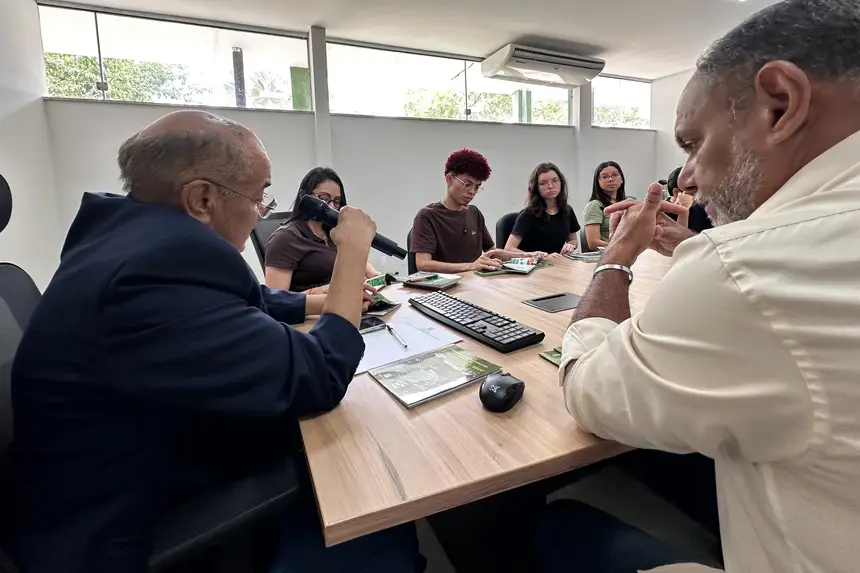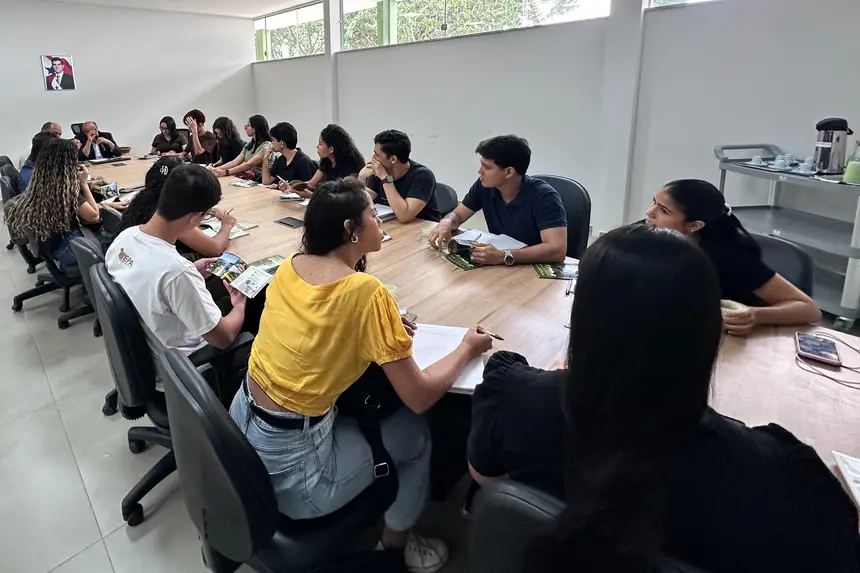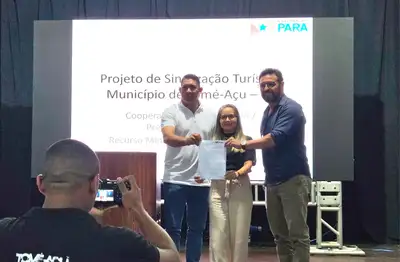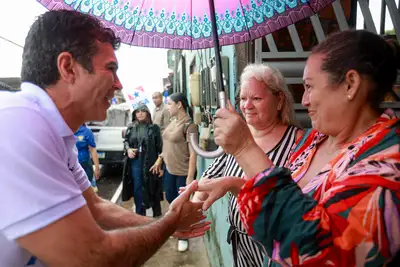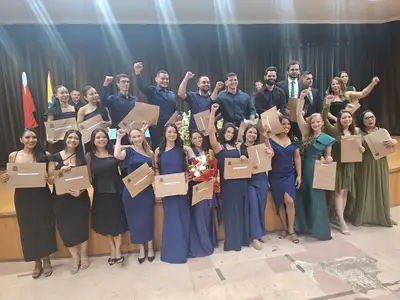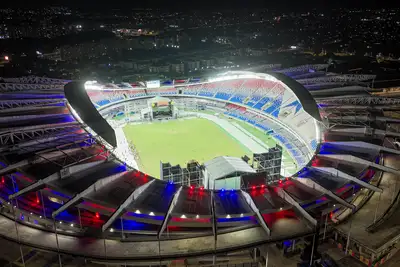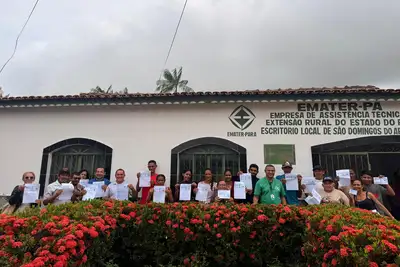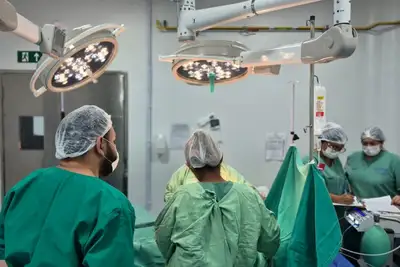Environmental Engineering Students from Uepa Learn About Ideflor-Bio Projects
Academic activity brings students closer to the State's public policies aimed at environmental management and biodiversity conservation
The Institute for Forest Development and Biodiversity of Pará (Ideflor-Bio) received, on this Monday (6), a visit from 18 students of the Environmental Engineering course at the State University of Pará (Uepa). The academic activity aimed to bring students closer to public policies focused on environmental management and biodiversity conservation, implemented by the Government of Pará.
During the visit, the students participated in a discussion circle with the president of Ideflor-Bio, Nilson Pinto, who presented the Institute's priority projects for the period from 2023 to 2026, highlighting actions aimed at the creation and management of conservation units, reforestation, forest management, and the appreciation of traditional communities. The exchange of experiences allowed students to understand the strategic role of the Institute in the State's environmental agenda.
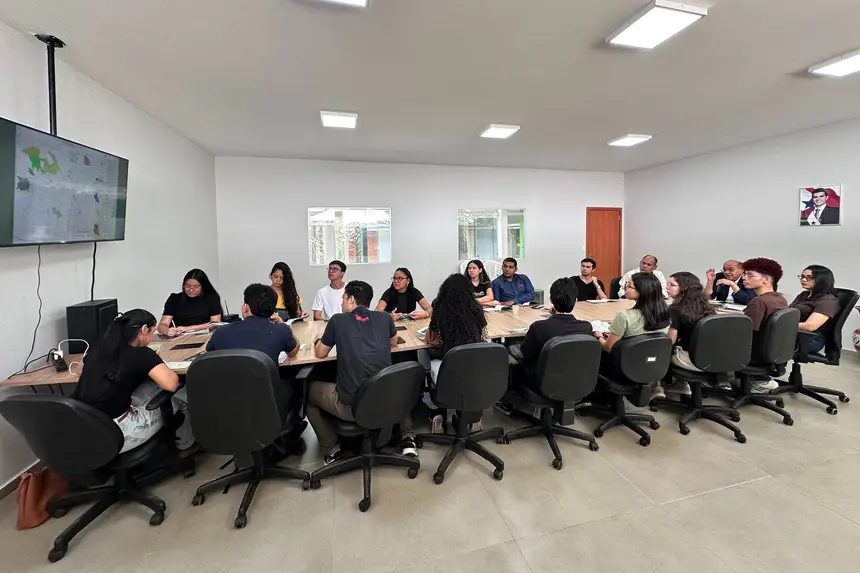
The group was led by Professor Sandro Mesquita from Uepa's Technological Center, who coordinates practical field activities in the Environmental Engineering course. He emphasized the importance of the connection between academia and state environmental agencies. “These moments are fundamental for students to closely understand how public policies materialize and to grasp the challenges and advances in environmental management in Pará,” highlighted the educator.
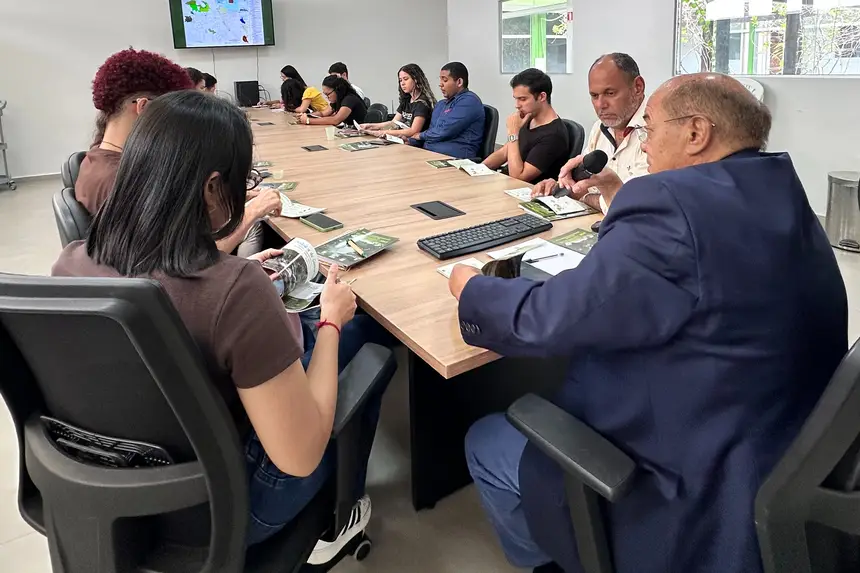
Consolidation - During the meeting, Nilson Pinto emphasized the agency's commitment to strengthening conservation actions. “Ideflor-Bio has sought to consolidate a modern, technical, and participatory environmental management that values scientific research and societal involvement. It is gratifying to receive young people who are graduating to work in the environmental field, as they represent the continuity of this work of protection and sustainable development that both Pará and Brazil need,” stated the manager.
The students also learned about the administrative structure of the Institute, the technical sectors, and ongoing projects, and clarified doubts about the functioning of state conservation units and the challenges of biodiversity management in the Pará territory. The dialogue contributed to broadening their understanding of environmental policies and inspiring new professional paths.
For the group of students, the experience was enriching, a unique opportunity to learn about the work that Ideflor-Bio carries out and to understand how conservation actions occur in practice. It was an opportunity to gain a broader view of the role of the environmental engineer in building a more sustainable future for Pará.



